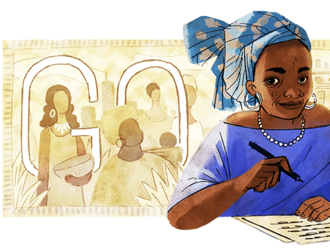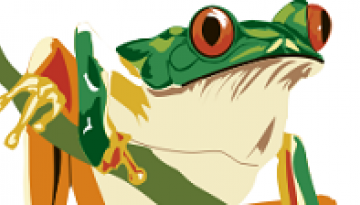Monitorujeme 1695 zdrojov

 Google Dooles 21.07.2019 03:03
Date: July 21, 2019
“I work toward the liberation of women. My books are about survival, just like my own life,” said the Nigerian novelist Buchi Emecheta, whose life and work are celebrated in today’s Doodle.
Born to Ibo parents in the Lagos suburb of Yaba on this day in 1944, Florence Onyebuchi Emecheta grew up listening to her grandmother’s tales and went on to become a prolific author. Although she resisted labeling herself a “feminist” author, much of Emecheta’s writing addressed issues of gender and race.
Married at age 16, Emecheta moved to London with her husband in 1962. She supported her five children by working at a library, pursued her sociology degree, all while writing tirelessly on novels—usually at the kitchen table as her children played.
Emecheta published 16 novels, including In The Ditch, Second-Class Citizen, and Slave Girl, as well as her 1986 autobiography, Head Above Water. She also wrote several plays for stage, TV, and radio.
During the 1970s and ’80s, Emecheta worked as a lecturer and founded the Ogwugwu Afor Publishing Company with her son. She was named an Officer of the British Empire in 2005, a remarkable accomplishment for someone who faced such adversity.
"Just keep trying and trying,” Emecheta once said. “If you have the determination and commitment, you will succeed."
Special thanks to the family of Buchi Emecheta, for their partnership on this project. Below, her son Sylvester Onwordi shares his thoughts on his mother’s legacy.
Photo courtesy of Valerie Wilmer
"My mother was a born storyteller. She was a descendant of Praise Singers—storytellers to the ancient Kings of Ibusa—the small Igbo-speaking town in Eastern Nigeria where her parents and my grandparents were born.
As an immigrant single mother battling poverty in the slums of 1960s London, she would draw her five small children around her, light candles, and delight us with what she called her ‘Moonlight tales’—stories she had learned at twilight by the light of a hurricane lamp from her aunts in the village, or imbibed at her father’s knee during her family’s internal exile in Lagos. For the young Nigerian girl who dreamed even then of being a writer, these tales were like umbilical threads connecting the lonely orphan she became with the lost world of mythical ancestors and her beloved home town of Ibusa.
Later, from the fabric of her personal experience as a reluctant exile in a foreign land, experiences of motherhood and racism, she began to weave stories of her own and to write them down. My mother famously compared writing novels to having children, which means that aside from my four blood brothers and sisters I have an extended family of at least 20 siblings roaming at large in the world, most of whom were conceived on the old typewriter on our kitchen table.
My mother’s passing inspired many feelings in me. One was the desire to ensure that her unique storytelling voice continue to be heard by future generations; another, that her name and legacy be associated with social works which reflected the values she lived by. A publishing company now exists to ensure that her novels remain in print and are available to a global readership. In addition, we, her surviving family, are in the process of working to establish a ."
Photo courtesy of Valerie Wilmer
Location:
,
Tags:
,
,
,
,
,
,
,
,
,
,
Google Dooles 21.07.2019 03:03
Date: July 21, 2019
“I work toward the liberation of women. My books are about survival, just like my own life,” said the Nigerian novelist Buchi Emecheta, whose life and work are celebrated in today’s Doodle.
Born to Ibo parents in the Lagos suburb of Yaba on this day in 1944, Florence Onyebuchi Emecheta grew up listening to her grandmother’s tales and went on to become a prolific author. Although she resisted labeling herself a “feminist” author, much of Emecheta’s writing addressed issues of gender and race.
Married at age 16, Emecheta moved to London with her husband in 1962. She supported her five children by working at a library, pursued her sociology degree, all while writing tirelessly on novels—usually at the kitchen table as her children played.
Emecheta published 16 novels, including In The Ditch, Second-Class Citizen, and Slave Girl, as well as her 1986 autobiography, Head Above Water. She also wrote several plays for stage, TV, and radio.
During the 1970s and ’80s, Emecheta worked as a lecturer and founded the Ogwugwu Afor Publishing Company with her son. She was named an Officer of the British Empire in 2005, a remarkable accomplishment for someone who faced such adversity.
"Just keep trying and trying,” Emecheta once said. “If you have the determination and commitment, you will succeed."
Special thanks to the family of Buchi Emecheta, for their partnership on this project. Below, her son Sylvester Onwordi shares his thoughts on his mother’s legacy.
Photo courtesy of Valerie Wilmer
"My mother was a born storyteller. She was a descendant of Praise Singers—storytellers to the ancient Kings of Ibusa—the small Igbo-speaking town in Eastern Nigeria where her parents and my grandparents were born.
As an immigrant single mother battling poverty in the slums of 1960s London, she would draw her five small children around her, light candles, and delight us with what she called her ‘Moonlight tales’—stories she had learned at twilight by the light of a hurricane lamp from her aunts in the village, or imbibed at her father’s knee during her family’s internal exile in Lagos. For the young Nigerian girl who dreamed even then of being a writer, these tales were like umbilical threads connecting the lonely orphan she became with the lost world of mythical ancestors and her beloved home town of Ibusa.
Later, from the fabric of her personal experience as a reluctant exile in a foreign land, experiences of motherhood and racism, she began to weave stories of her own and to write them down. My mother famously compared writing novels to having children, which means that aside from my four blood brothers and sisters I have an extended family of at least 20 siblings roaming at large in the world, most of whom were conceived on the old typewriter on our kitchen table.
My mother’s passing inspired many feelings in me. One was the desire to ensure that her unique storytelling voice continue to be heard by future generations; another, that her name and legacy be associated with social works which reflected the values she lived by. A publishing company now exists to ensure that her novels remain in print and are available to a global readership. In addition, we, her surviving family, are in the process of working to establish a ."
Photo courtesy of Valerie Wilmer
Location:
,
Tags:
,
,
,
,
,
,
,
,
,
,
NEWS.SK odpor├║─Źa
Nie s├║ n├íjden├ę ┼żiadne ─Źl├ínky.
Nie s├║ n├íjden├ę ┼żiadne ─Źl├ínky.




















